2016-2017 Fellows
MID-CAREER FACULTY FELLOWS
Al Coppola is an Associate Professor of English at John Jay College of Criminal Justice in the City University of New York. Professor Coppola’s first book, The Theater of Experiment: Staging Natural Philosophy in Eighteenth-Century Britain (Oxford 2016), is a critical study of science in—and as—performance. It analyzes the role of spectacle in both the production of natural knowledge and the accrual of cultural capital by experimental science. His current book project, Enlightenment Visibilities, explores strategies and technologies, first innovated in the long eighteenth century, that bring previously unimaginable or imperceptible phenomena into the domain of perception and knowledge.
Professor Coppola is a member of the Columbia Seminar in Eighteenth-Century European Culture, having served as chair from 2010-2016. A co-founder of the Science Studies Caucus of the American Society for Eighteenth Century Studies, he also sits on the advisory board of Restoration and Eighteenth-Century Theater Research.
William deJong-Lambert (https://bcc-cuny.digication.com/william.dejong-lambert/Welcome/) is a historian of science whose research focuses on early 20th century biology. In 2009 he organized the first International Workshop Lysenkoism, which was followed by the Second International Workshop on Lysenkoism, hosted by the University of Vienna, in 2012. His current project is a book, The Fly Room: The Invention of Genetics and the Science of Evolution, which focuses on the role of Theodosius Dobzhansky, L.C. Dunn, J.B.S. Haldane, Julian Huxley and H.J. Muller in the “modern synthesis” of genetics and natural selection.Catherine Wilson works in value theory from an empirical standpoint including meta-ethics and aesthetics, especially studies of vision and visuality. She is currently interested in the perceptual, cognitive, and emotional mechanisms underlying the experience of beauty and aesthetic significance, and she has published a number of papers on these topics.
Nancy Yousef is Professor of English at the City University of New York where she teaches where she teaches eighteenth and nineteenth century literature and philosophy at The Graduate Center and Baruch College, Her research interests include ethics, literary form and the imagination of the emotions. She is the author of Isolated Cases: The Anxieties of Autonomy in Enlightenment Philosophy and Romantic Literature (Cornell University Press, 2004) and, most recently, Romantic Intimacy (Stanford UP, 2013), which was awarded the Jean-Paul Barricelli prize for the year’s outstanding work in romanticism. Her other publications include essays on Jean-Jacques Rousseau, Mary Wollstonecraft, William Wordsworth, Mary Shelley, John Stuart Mill and Charles Dickens. She has been the recipient of fellowships from the American Council of Learned Societies (2002-2003), the National Humanities Center (2006-2007), and the Mellon Foundation (2009-2010). Her current project, tentatively entitled “The Aesthetics of the Commonplace,” explores theoretical and methodological efforts to define the “ordinary” as the distinctive terrain of artistic investigation.
DISSERTATION FELLOWS
Marilynn Johnson is a PhD candidate in the Department of Philosophy at the Graduate Center, CUNY working primarily in the philosophy of language and aesthetics. Her dissertation, Meaning Through Things, is on interpretation, construed broadly, and draws on work in the philosophy of language, aesthetics, linguistics, literary theory, and cognitive science. Her research is supported by the 2016-2017 American Society for Aesthetics Dissertation Fellowship and a 2016-2017 Interdisciplinary Committee for Science Studies at the CUNY Graduate Center Fellowship. She has presented her work at Rutgers University, University of Malta, University of Oxford, University of Sydney, and other schools. Her “Tree Trimming: Four Non-Branching Rules for Priest’s Introduction to Non-Classical Logic” was published Australasian Journal of Logic in 2015 and her “Cooperation with Multiple Audiences” is in press for the Croatian Journal of Philosophy. She was one of the founders of the SWIP-Analytic lecture series for women in analytic philosophy, which is now in its fourth year.
Kaitlin Mondello is a Ph.D. Candidate in English at The Graduate Center. She is working on her dissertation on posthuman ecology in transatlantic Romanticism focused on the work of Mary Shelley, Percy Shelley, Ralph Waldo Emerson and Emily Dickinson. Her teaching and research interests include Ecocriticism and Animal Studies. She is an Adjunct Professor of English at Hunter College in New York City and taught previously in Florida at Stetson University and Daytona State College. She is a Writing Fellow at The School of Professional Studies and worked as a Writing Fellow previously with the Sustainability and Environmental Justice Program at John Jay College. She leads the Ecocriticism Public Working Group through The Center for the Humanities and is the author of “‘Perpetual Analogies’ and ‘Occult Harmonies’: Ralph Waldo Emerson’s Ecological Selves” in Romantic Ecocriticism: Origins & Legacies (Lexington Books, 2016).
Joy M. Partridge is a Ph.D. candidate in art history. Her research focuses on medieval encyclopedias and their diagrams, with a special interest in the pictorialization of natural philosophy in the late medieval period.
2015-2016 Fellows
MID-CAREER FACULTY FELLOWS
Cynthia Chris is Associate Professor in the Department of Media Culture at the College of Staten Island. Her research interests include media history, gender and sexuality, media authorship, and critical animal studies. She is the author of Watching Wildlife (University of Minnesota Press, 2006), and chapters on human-animal interactions in “Boys Gone Wild: The Animal and the Abject,” in Animals and the Human Imagination: A Companion to Animal Studies (Columbia University Press, 2012), and “Subjunctive Desires: Becoming Animal in Green porno and Seduce Me,” in Animals and the Moving Image (BFI, 2015, forthcoming). She is beginning a new project on digital animals. Dr. Chris is also co-editor of Cable Visions: Television Beyond Broadcasting (New York University Press, 2007), Media Authorship (Routledge, 2013), and, for the term 2014-16, the journal WSQ: Women’s Studies Quarterly.
Stefano Ghirlanda is Professor of psychology, biology and anthropology at Brooklyn College, a member of the doctoral programs in biology and psychology at the Graduate Center, and a founding fellow of the Centre for the Study of Cultural Evolution at Stockholm University. After completing a degree in mathematical physics at the University of Rome “La Sapienza,” he pursued a Ph.D. in zoology at Stockholm University, developing neural network models of animal information processing and using them to investigate the evolution of communication. His current research focuses on developing a general theory of learning and behavior, with the goal of describing the core information processing operations that underlie animal intelligence, and identifying those that are unique to humans. Because intelligence in many species is interdependent on social factors my research also includes how information is transferred between individuals, how it is processed collectively in populations, and how that affects (often potentiates) human and non-human cognition.
Robert Lurz is a Professor of Philosophy at Brooklyn College interested in theoretical and empirical issues concerning animal minds. Over the past five years, my research has focused on methodological issues pertaining to testing theory-of-mind and metacognition in nonhuman animals (in particular, apes). On these issues, I have written a book (Mindreadng Animals, MIT Press), edited a book (Philosophy of Animal Minds, CUP), and published a handful of articles. I am currently collaborating with two well-known ape researchers, Carla Krachun and Bill Hopkins, to test theory-of-mind and metacognition in apes. I also have an interest in theories of consciousness, and many years ago advanced a novel non-higher-order representational theory of consciousness, called the same-order account, which I have published some articles. I was born and raised in Buffalo, NY and went to graduate school at Temple University in Philadelphia where I studied under Michael Tye.
DISSERTATION WRITING FELLOWS
Julia Hyland Bruno is a 5th year PhD student in the Department of Psychology at the CUNY Graduate Center and Hunter College, where her research focuses on birdsong development.
Melissa Nelson Slater is an Associate Certified Applied Animal Behaviorist through the Animal Behavior Society and is a professional member of both the Animal Behavior Management Alliance and the International Marine Animal Trainer’s Association. In addition to earning her Master’s Degree in Psychology with a focus in Animal Behavior and Conservation, she is currently enrolled in a PhD program in Biopsychology and Behavioral Neuroscience at the CUNY Graduate Center and Hunter College. Melissa joined the Bronx Zoo in January 2008, and is now their first Assistant Curator of Behavioral Husbandry. Her role is to facilitate development of the enrichment and training programs throughout the zoos. This includes heading the zoo’s scientifically-based Animal Enrichment Program, which provides daily goal-based enrichment to every animal for which the zoo cares. Her duties include educating and supervising the staff in behavior modification techniques, targeting specific behavioral issues, and directly participating in daily enrichment and training sessions. Melissa began her training career with bottlenose dolphins and California sea lions as well as with private dog training but her current role encompasses the entire collection in the WCS parks including; Komodo dragons, white rhinos, giraffes, vultures, Nile crocodiles, California sea lions, lemurs and many more species.
Henry Shevlin is a Ph.D. candidate in philosophy. He has a B.A. from St Anne’s College, University of Oxford. Shevlin’s interests span from work on cognitive science and the intersection of philosophy of mind and psychology. In particular he is interested in the distinction between “phenomenal consciousness” (states of consciousness that have a qualitative feeling to them, such as a tickle or the smell of the ocean) versus “access consciousness” (the ability to access information, such as one’s birthdate).
2014-15 Fellows
Mid-Career Fellows
Kenneth Guest’s (Associate Professor, Anthropology, Baruch College) research focuses on immigration, religion, globalization, China, New York’s Chinatown, and transformative pedagogy. His book God in Chinatown: Religion and Survival in New York’s Evolving Immigrant Community (New York University Press, 2003) traces the role of religion in the immigrant journeys and incorporation experiences of recent Chinese immigrants from Fuzhou, southeast China, to New York City. Guest’s ongoing research and writing explores the transformation of New York’s Chinatown into a catalyst and hub for the organization of the rapidly expanding U.S. network of Chinese all-you-can-eat buffets and take-out restaurants and the higher education experiences of the Fuzhounese second generation. His research has been featured in the New York Times and on National Public Radio, the BBC, Telemundo, and NY1, as well as other media venues. His most recent book, Cultural Anthropology: A Toolkit for a Global Age (W. W. Norton and Company, 2014), challenges students to use the methodological and analytical tools of anthropology to explore the complex constructions of culture and power in the globalizing world around them. Relatedly, Guest is conducting research on the pedagogical challenges of destabilizing essentialist notions of human nature to unleash student learning and engagement. A native of Florida, Guest studied Chinese at Beijing University and Middlebury College. He received a B.A. from Columbia University (East Asian languages and cultures), an M.A. from Union Theological Seminary (religious studies), and M.A., M.Phil., and Ph.D. degrees from the City University of New York Graduate Center (anthropology).
Andreas Killen (Associate Professor, History, City College of New York and the Graduate Center) has published widely on German history and the history of psychiatry. His books include Berlin Electropolis: Shock, Nerves, and German Modernity (University of California Press, 2006) and 1973 Nervous Breakdown: Watergate, Warhol, and the Birth of Post-Sixties America (Bloomsbury, 2006). Most recently, Killen coedited a volume of the journal Grey Room titled “On Brainwashing: Mind Control, Media, and Warfare.” He is currently at work on a book project on film and the human sciences in early-twentieth-century Germany.
Julie Maybee (Associate Professor, Philosophy, Lehman College) is the director of the interdisciplinary disability studies minor program at Lehman College. She also teaches in the disability studies master’s program for the School of Professional Studies. Her research areas are nineteenth-century Continental philosophy, particularly the work of G.W.F. Hegel, African philosophy, race and philosophy, and disability studies. Maybee is the author of Picturing Hegel: An Illustrated Guide to Hegel’s Encyclopaedia Logic (Lexington Books, 2009), as well as articles on disability studies, African philosophy, educational theory, race, and nineteenth-century Continental philosophy. What unites her seemingly eclectic specialties is an overriding interest in the way socially defined differences as well as time and place shape people’s identities, knowledge, and experiences.
Rochelle Rives (Associate Professor, English, Borough of Manhattan Community College) is the author of the book Modernist Impersonalities: Affect, Authority, and the Subject (Palgrave Macmillan, 2012). Her articles have most recently appeared in Modernism/Modernity, Journal of Modern Literature, and Criticism: A Quarterly for the Arts. Her current book manuscript, The New Physiognomy: Modernism and Facial Form, examines the connections between the face, narrative, and aesthetic form in works by Oscar Wilde, Joseph Conrad, Henri-Gaudier Brzeska, Mina Loy, Nathanael West, Theodore Dreiser, and others. The project looks to the history of physiognomic science as well as to recent debates about affects and the emotions, focusing on the question of what expression can mean given changing definitions of the individual and personality at the turn of the twentieth century.
Mellon Dissertation Fellows
Rachel Kravetz is a doctoral candidate in English at the CUNY Graduate Center. Her dissertation treats intersections between British empiricism and visual aesthetics in the late seventeenth to late nineteenth centuries. It proposes that British writers rely on the theory and history of art to conceptualize how the mind forms, combines, and links ideas.
Tiwi Marira is a doctoral candidate in industrial/organizational psychology at the CUNY Graduate Center. His research aims to elucidate the influence of intra- and interracial differences in skin tone on employee selection and appraisal processes. Marira employs social psychological, political science, and implicit bias theories to explain this form of discrimination among various racioethnic groups. He received his B.S. in psychology from the University of Georgia and his M.S. and M.Phil. in industrial/organizational psychology from Baruch College and the Graduate Center. Marira is actively engaged in nonprofit work where he provides career coaching for minority, immigrant, and military veteran populations in the New York City area.
Christina Nadler is a doctoral candidate in the sociology program at the CUNY Graduate Center. She has taught at Hunter College since 2008 and at Brooklyn College from 2008–2011. Nadler has worked as a thread editor for Lateral: A Journal of the Cultural Studies Association, which released the thread she coedited with Megan Turner, “Queer the Noise,” in May 2014, along with her coauthored article with Megan Turner, “Between Meaning and Becoming: Some Introductory Notes on Queering the Noise.” Her areas of interest include cultural studies, science and technology, psychoanalytic theory, poststructuralism, race, gender, animal studies, queer theory, new materialism, and ontology. Nadler’s dissertation explores both autonomy and movement as political objectives in the context of poststructuralism and new materialisms.
2013-2014 Fellows
Faculty Fellows
Associate Professor of Psychology, John Jay College
Email: mallwood@jjay.cuny.edu
Maureen Allwood, Ph.D. is an Associate Professor in the Department of Psychology at John Jay College. She is a licensed psychologist who received her Ph.D. from the University of Missouri- Columbia and completed her clinical internship at the Boston Consortium where she focused on the treatment of posttraumatic stress disorder (PTSD). Following her clinical internship Dr. Allwood completed a two-year NIMH funded postdoctoral research fellowship at Brown Medical School. Dr. Allwood’s research focuses on the developmental effects of violence and trauma exposure. She is interested in both the psychological and biological aspects of youth posttraumatic stress response, and in how these aspects interact to predict negative outcomes, such as school failure, delinquency, and substance use among trauma-exposed youth. Her research interests also focus on low-income, immigrant, and war-displaced youth. These interests stem from many years of direct services with trauma affected youth and families.
Associate professor of English, College of Staten Island
Email: alyson.bardsley@csi.cuny.edu

Alyson Bardsley’s original specialization was in British eighteenth-century and Romantic-era writing; to date most of her publications have been on Scotland and Romantic-era cultural nationalism, with forays into feminist pedagogy, law and literature, and trauma theory. This last partially led the way to her current project. In it she examines old and new materialisms in the intersections between the popular understanding of neuroscience and contemporary narrative, including both the novel and life writing, with particular emphasis on the depiction of cognitive alterity via characters with various forms of brain damage, characters with Autism Spectrum Disorders, and animal minds.

Associate Professor of History at Queensborough Community College
Email: melias@qcc.cuny.edu
Megan Elias is Associate Professor of History at Queensborough Community College. She is the author of Stir it Up: Home Economics in American Culture (University of Pennsylvania Press, 2008) and Food in the United States, 1890 to 1945 (Greenwood Press, 2009). She has just completed a cultural history of American cookbooks and co-authored a global history of barbecue. Her work uses writing about food and food science as a lens to understand American culture.

Professor of Psychology at City College of New York
Email: gmilstein@ccny.cuny.edu
Dr. Milstein is an associate professor of psychology at the City College of New York. He is a licensed clinical psychologist who worked for ten years in psychiatric hospitals, learning the limits of clinical care when used alone to treat chronic mental health problems. To thrive, people need communities. For most persons, communities include their religious congregations. Research based on these experiences led to the COPE model (Milstein, Manierre & Yali, 2010): a prevention science based continuum of care that acknowledges the complementary contributions of clinicians, clergy, families, and community. Professor Milstein’s work this year will be to explore community from a biological developmental perspective. The abstract ideas that form culture become material in the neuroanatomical consolidation of the developing human brain through interpersonal integration of culture across the lifespan. Dr. Milstein’s working term for individual human brain development through serial transmission of group knowledge and values, via multi-sensory rituals and interactions with our expanding circle of relationships is: Culture Ontogeny.

Professor of Philosophy at Lehman College
Email: massimo@platofootnote.org
Prof. Pigliucci has a Doctorate in Genetics from the University of Ferrara (Italy), a PhD in Evolutionary Biology from the University of Connecticut, and a PhD in Philosophy from the University of Tennessee. He has done post-doctoral research in evolutionary ecology at Brown University and is currently Chair of the Philosophy Department at Lehman College and Professor of Philosophy at the Graduate Center of the City University of New York. His research interests include the philosophy of biology, in particular the structure and foundations of evolutionary theory, the relationship between science and philosophy, the relationship between science and religion, and the nature of pseudoscience.Prof. Pigliucci is the Editor-in-Chief of the open access journal Philosophy & Theory in Biology (philosophyandtheoryinbiology.org). He has been elected fellow of the American Association for the Advancement of Science “for fundamental studies of genotype by environmental interactions and for public defense of evolutionary biology from pseudoscientific attack.”Prof. Pigliucci has published 113 technical papers in science and philosophy. He is also the author or editor of 10 technical and public outreach books, including Denying Evolution: Creationism, Scientism and the Nature of Science (Sinauer), Making Sense of Evolution: Toward a Coherent Picture of Evolutionary Theory (with Jonathan Kaplan, University of Chicago Press), and most recently Nonsense on Stilts: How to Tell Science from Bunk (University of Chicago Press). His new book is Answers to Aristotle: How Science and Philosophy Can Lead Us to a More Meaningful Life (BasicBooks).More information can be found at platofootnote.org and rationallyspeaking.org

Professor in the Program in Linguistics at the CUNY Graduate Center, Professor of Psychology at College of Staten IslandWhat are the mechanisms underlying rapid, incremental on-line language comprehension? How do preschool children develop fast and interactive processing system that allows them to successfully employ multiple sources of information on-line? Do bilingual speakers to rely on two independent sets of processing mechanisms or is the nature of the bilingual processing system universal? The answers to these questions come from experimental studies in Dr. Sekerina’s experimental psycholinguistic laboratory that utilize the free head eye-tracking technique in studying language processing in real time. Research in Dr. Sekerina’s laboratory focuses on both adults and children, and on two languages, English and Russian. She is a recipient of an NSF ADVANCE grant designed to advance careers of women in science. A native of Moscow, Russia, she has taught at several East European summer schools and brings in a strong international perspective to her research and teaching.
Visiting Assistant Professor and Mellon Postdoctoral Fellow, Committee for Interdisciplinary Science Studies
Sahar Sadjadi is an anthropologist and medical doctor whose research lies at the intersection of science and technology, gender and sexuality and childhood studies. She studied medicine at Tehran University of Medical Sciences, worked as an emergency room physician, and studied medical anthropology at Columbia University. She conducted an ethnographic multi-sited study of the clinical practices (psychiatric and endocrine) around gender non-conforming children and the revision of the psychiatric category, Gender Identity Disorder in Children. Her work has been funded by the Wenner-Gren Foundation and National Science Foundation. Her research explores the relation of body, brain, identity and the self in the biomedical conceptualizations of difference; the status of children as research subjects in establishing scientific evidence of truth and authenticity; and the contemporary cultural and scientific appeal of innate and pre-destined notions of identity. She is currently working on a new project on the bio-social mechanisms of puberty and the bio-ethical dimensions of medical interventions which suppress or delay puberty in children.

Doctoral Candidate in Sociology
Email: zmeleo-erwin@gc.cuny.edu
Zoë Meleo-Erwin is is PhD candidate in Sociology at the City University of New York Graduate Center. She holds a previous MA in Disability Studies from the Graduate Center. Her dissertation research focuses on the biosociality of weight loss surgery support groups.

Doctoral Candidate in English
Email: zach.samalin@gmail.com
Zach Samalin is a doctoral candidate in English at the CUNY Graduate Center. His dissertation, “The Masses Are Revolting,” explores the role of disgust in Victorian culture, in and out of the novel. In particular, his research focuses on the interrelation of 19th century sanitary reform and Enlightenment aesthetics, as well as on the intersections of 19th century physiology of the stomach and gastric medicine with Victorian theories of instinct and the philosophical rhetoric of judgment, gut reactions, and gag reflexes.

Doctoral Student in History at the CUNY Graduate Center
Email: cewing@gc.cuny.edu
As a Ph.D. studentin Modern European History, I research topics surrounding sexuality and homosexuality in Europe and North America during the 20th century, with a particular focus on the AIDS epidemic in the Federal Republic of Germany during the 1980s. Right now I’m working on a project examining the medicalization of homosexuality in the psychiatric institutions of Western Europe and North America during the mid-20th century. This project will also explore similar discourses of pathology which emerged later during the AIDS crisis and how such discourses shaped gay cultures and identities.

Doctoral Student in English at the CUNY Graduate Center
Email: eglass@gc.cuny.edu
Erin Glass is a doctoral student in the English department at CUNY Graduate center. Her interests include objectivity as mythology, mind as narrative, language as technology and the limits of scientific imagination. After receiving her B.A. in English from UCLA, she worked as an arts writer and entertainment editor at The San Diego Union-Tribune. Before coming to the Graduate Center, she spent the better part of the year living off the grid and working on small farms in Upstate New York.
Doctoral Student in Philosophy at the CUNY Graduate Center
Zoe Jenkin
Zoe Jenkin is interested in the philosophy of mind, especially issues concerning the contents of perception, modularity, and cognitive architecture. She received her B.A. in English and Philosophy from Williams College. She plans to pursue interdisciplinary research that engages results from psychology and neuroscience.

Doctoral Student in English at the CUNY Graduate Center
My ecocritical work explores the complex role of the natural world in American literature and culture. I am especially interested in 19th and 20th century poets’ representations of human relationships with animals and the environment, from worship and pastoral harmony to exploitation and pollution. After receiving my B.A. and M.A. in English, both from Stetson University in central Florida, I worked as the Director of Stewardship (donor relations) for my university and as an adjunct instructor of English at Daytona State College in the Daytona, Florida area.

Doctoral Student in Critical Social Personality Psychology at the CUNY Graduate Center
Fernando Quigua’s research interests concern the philosophy of psychological science, mythology and social imagination, and the relationships between psychopathology and oppression. In particular, Fernando is interested in deepening our ‘psychopolitical’ literacy of contemporary social problems through an archetypal / psychoanalytic lens and through dialogical and critical social theories. He has a Master’s degree in International Affairs from Columbia University and an MSW from NYU. He is a practicing psychotherapist in New York City.
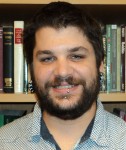
Doctoral Student in Philosophy at the CUNY Graduate Center
Email: derek.skillings@gmail.co
Derek has a PhD in biology and a MA in philosophy from the University of Hawaii at Manoa. His research interests include philosophy of biology, philosophy of science, meta-ethics, Bayesian epistemology, and American pragmatism. His current research is focused on conceptual issues in speciation, biodiversity, conservation and sustainability. He is also interested in exploring naturalistic foundations for ethics.
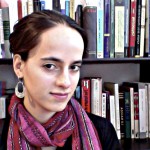
Doctoral Student in Philosophy at the CUNY Graduate Center
Carissa Véliz is a PhD student in the Philosophy Program at the CUNY Graduate Center. Her interests focus on the intersection between ethics, cognitive science, moral psychology, philosophy of mind, Buddhist philosophy, and philosophy of science. She is also interested in bioethics, international ethics, and feminism. She would like to develop a theory of ethical know-how in which morality is understood more as a set of skills and habits than as rational rule-following. Her research involves exploring the use of first-personal methods of inquiry in the study of consciousness, the possibility of developing moral skills and motivation through meditation, and the role of emotions in morality.
2011-2012 Fellows for the Seminar on Embodiment
MID-CAREER FACULTY FELLOWS

Associate Professor of Sociology at the College of Staten IslandJeffrey Bussolini is Associate Professor of Sociology, Anthropology and Social Work at the College of Staten Island. His current work deals with the strange and sometimes chilling was there are parallels between nuclear physics and the worldview of the Marquis de Sade, using the tools of feminist and philosophical analysis to look at physics as a discourse and a body of knowledge in which corporeality is treated as sheerly material and physical. Select publications include, The Culture of National Security Science: Los Alamos and Wen Ho Lee (Duke, 2011), “Los Alamos as Laboratory for Domestic Security Measures” (Geopolitics, 2011), and “Ongoing Founding Events in the Work of Carl Schmitt and Giorgio Agamben” (Telos, 2011).

Associate Professor of English at the College of Staten Island and the CUNY Graduate CenterAshley Dawson is Associate Professor of English at the City University of New York’s Graduate Center and at the College of Staten Island/CUNY. He is the author of Mongrel Nation: Diasporic Culture and the Making of Postcolonial Britain (Michigan, 2007) and co-editor of three essay collections: Democracy, the State, and the Struggle for Global Justice (Routledge, 2009); Dangerous Professors: Academic Freedom and the National Security Campus (Michigan, 2009); and Exceptional State: Contemporary U.S. Culture and the New Imperialism (Duke, 2007). He is currently completing a book entitled Urban Culture and Imperialism, a study of urbanization and biopolitics in colonial and postcolonial cities, and has recently begun work on a project on the movement for climate justice. A co-editor of Social Text online and a member of the Social Text collective, he blogs at ashleydawson.info

Associate Professor of Anthropology at Queens College and the CUNY Graduate CenterMurphy Halliburton is Associate Professor of Anthropology at Queens College and the Graduate Center. His current work draws on his research on embodiment and healing and India to investigate how scientists and the public in the United States use understandings of genetics to explain illness and behavior and do some of the work of ontology and religion in ascribing meaning to suffering and difference. His forthcoming book is titled, Patenting Practices: The Shape of Property in the 21st Century, (Duke, 2011). Past publications include Mudpacks and Prozac: Experiencing Ayurvedic, Biomedical, and Religious Healing, (West Coast Press, 2009), “Resistance or Inaction? Protecting Ayurvedic Medical Knowledge and Problems of Agency” (American Ethnologist, 2011), and “Drug Resistance, Patent Resistance: Indian Pharmaceuticals and the Impact of a New Patent Regime” (Global Public Health, 2009).

Associate Professor of Philosophy at the College of Staten Island and the CUNY Graduate CenterBarbara Montero is Associate Professor of Philosophy at the College of Staten Island and the Graduate Center. Her current work seeks to gain insight into human nature, discussing the inferior performance that results from neural and psychological deficits. She explores the role rationality, bodily awareness and intuition play in expert-level actions. Her forthcoming book is titled, Mind, Body, Movement: The Role of Self-Reflection in Expert Action (contract signed). Past publications include, Philosophy of Mind (Wadsworth, 2009), Economics and the Mind (Routledge, 2006), and “Practice Makes Perfect: The Effect of Dance Training on the Aesthetic Judge” (Phenomenology and Cognitive Science, 2011).

Associate Professor of Social Science at the Borough of Manhattan Community CollegeElizabeth Wissinger is Associate Professor of Social Science at Borough of Manhattan Community College whose current work deals with deconstructing accepted notions of culturally idealized bodies, looking beyond patriarchy and consumerism to consider how the current state of productive and scientific technologies influence the bodily ideal. Her forthcoming book is titled Fashioning Models: Image, Text, and Industry (London: Berg Publishers, 2011). Select journal publications include, “The Top Model Life” (Contexts: a publication of the American Sociological Association, 2010), “Modeling Consumption:Fashion modeling work in contemporary society” (Journal of Consumer Culture, 2009), and “Modeling a Way of Life: Immaterial and Affective Labor in Fashion Modeling Industry” (ephemera: theory and politics in organization, 2007).
POSTDOCTORAL FELLOW
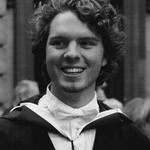
Visiting Assistant Professor in Science Studies at the CUNY Graduate CenterEben Kirksey is a cultural anthropologist at the CUNY Graduate Center who studies the political dimensions of imagination as well as the interplay of natural and cultural history. His first book, “Freedom in Entangled Worlds”, is about an indigenous political movement in West Papua, the half of New Guinea under Indonesian control. This book will be published in 2011 by Duke University Press. As a guest co-editor of Cultural Anthropology Eben has assembled a collection of original research articles from the emerging field of multispecies ethnography.
DISSERTATION WRITING FELLOWS

PhD Student in English at the CUNY Graduate CenterMarissa Brostoff is a doctoral student in the English department at the CUNY Graduate Center and a teacher at Brooklyn College. Her interests include the literature and intellectual history of the Cold War, theories of disability and intelligence, and popular science. She is currently co-organizing the English department’s 2012 graduate student conference, “Cripples, Idiots, Lepers, and Freaks: Extraordinary Bodies/Extraordinary Minds.” Before coming to the Grad Center, Marissa received her B.A. from Wesleyan University and worked as a reporter at the Forward newspaper and Tablet Magazine. She is now a host of Beyond the Pale, a Jewish arts and politics radio show on New York’s WBAI. If she had to start working on a dissertation tomorrow, it would investigate the relationships among science, education, and “highbrow” culture in midcentury America.

PhD Student in Sociology at the CUNY Graduate CenterKim Cunningham, MPhil is a doctoral candidate in the Sociology Program at the Graduate Center. Her interestes include affect studies, Deleuzian theory, sociology of the body, and psychoanalysis. Kim’s dissertation is an investigation into the affective biopolitics of EMDR (Eye Movement Desensitization and Reprocessing), a relatively new psychotherapy applied in disaster settings using sensory techniques to reorganize the brain’s response to trauma, which won her the 2010 Koonja Mitchell Memorial Prize. Her rececnt book chapter, “This is Not a Hat: Toward a Haptic Methodology in Fashion Studies,” which uses performative methods and experimental wriiting to retheorize the tactile-visual relationship, is currently at press to be publoshed in Exploring Culture Through Fashion. The chapter is based on a paper she presented at Oxford University in 2009. Kim is also an active participant in the NeuroCultures Seminar chaired by Victoria Pitts-Taylor and Rachel Leibert. “Should We Be Triggered? NeuroGovernance in the Future/(Tense)” is currently under review for Social Text Periscope with some other dossiers from the seminar. Kim teaches at various CUNY campuses where she has also served as a Writing Fellow. She teaches courses such as Sociology of Emotion, Sociological Theory, LGBT Studies, Clothing and Society, and Sex and Gender at Fashion Institute of Technology (FIT) and Montclair State University.

PhD Student in Philosophy at the CUNY Graduate CenterRyan DeChant is a second-year Ph.D. student in Philosophy and Cognitive Science at the Graduate Center of the City University of New York. His primary research interests are consciousness, cognition and communication. He is also interested in the nature of norms and the psychology of normative judgment. At the moment, his main project investigates what it is about the human mind that enables us to engage in what cognitive scientists call “mindreading”—the socio-cognitive capacity to attribute psychological states to ourselves and others—and the role that mindreading plays in our social, moral and linguistic interactions.

PhD Student in Philosophy at the CUNY Graduate CenterDaniel Shargel is a PhD in philosophy at the CUNY Graduate Center. He is developing a theory of emotion in the tradition of William James and Karl Lange, in which he applies findings from psychology and neuroscience to address traditionally philosophical questions. On his view, emotions are non-cognitive, non-representational, embodied states. They are analogous to drives such as hunger and thirst, rather than judgments, perceptions or feelings. Ultimately he hopes to apply his theory to questions in moral psychology and theory of action. He is also interested in other topics in cognitive science and the philosophy of mind, particularly the nature of consciousness. He received his B.A from Swarthmore College in 2004, where he graduated with Honors with a major in Philosophy and a minor in Psychology. He has taught in the philosophy department at City College.

PhD Student in Sociology at the CUNY Graduate CenterAlyson K. Spurgas is a doctoral candidate in the Sociology program and recently received a certificate from the Women’s Studies program at The Graduate Center. Her research explores the intersections of science and technology studies, gender studies, historical, social, and critical analyses of science and medicine, and the most innovative empirical work in these domains, with a deep commitment to interdisciplinarity. Spurgas is inspired by poststructuralist, psychoanalytic, and affective theories of knowledge-production, embodiment, and trauma. Her current research extends debates over the techno-medical production and bio/neuropolitical regulation of sex and sexuality. Her dissertation, titled “Circuits of Desire: Neuroimaging, Evolutionary Femininity, and Therapeutic Learning” analyzes the production of femininity via neuroimaging and therapeutic technologies which are used to diagnose and treat low or absent desire in women – a condition referred to as Hypoactive Sexual Desire Disorder (HSDD). Spurgas received a BA and an MA from the University of Maryland, and she is currently a research fellow at Queens College. She has most recently published in Sociological Inquiry, Social Text, and in an anthology which is part of the Queer Interventions series on Ashgate Press.
VISITING SCHOLAR

Cognitive Science, University of OxfordNicholas Shea is an interdisciplinary philosopher of mind, and of psychology, cognitive science and cognitive neuroscience. He is a Senior Research Fellow at Somerville College, Oxford, based in the Faculty of Philosophy, with attachments to the Oxford Martin School and the Oxford Centre for Neuroethics. As well as philosophical work on mental representation, consciousness and the metaphysics of mind, he has published in scientific journals in collaboration with psychologists, cognitive neuroscientists and biologists. His current focus is on the nature of representation, concentrating on two very different types of relatively low-level representing systems: the neural mechanisms underpinning reward-guided decision making, and inheritance systems.
[/wptabcontent]
2010-2011
2010-2011 Seminar Fellows
MID-CAREER FACULTY FELLOWS
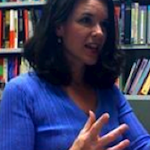
Associate Professor of Philosophy at the CUNY Gradute Center & Hunter CollegeChrista Davis Acampora is an associate professor of philosophy at Hunter College and The Graduate Center of the City University of New York. She is the executive editor of The Journal of Nietzsche Studies and author of dozens of articles and book chapters on topics in moral psychology, political philosophy, and aesthetics. Together with Ralph Acampora, she edited A Nietzschean Bestiary: Becoming Human Beyond Docile and Brutal (Rowman & Littlefield 2004), and she published as editor Critical Essays on Nietzsche’s On the Genealogy of Morals (Rowman & Littlefield 2006). She is the co-editor of two volumes on aesthetics and the cultural productions of women of color, both with Angela Cotten: Unmaking Race, Remaking Soul: Transformative Aesthetics and the Practice of Freedom (SUNY 2007) and Cultural Sites Of Critical Insight: Philosophy, Aesthetics, And African- And Native-American Women’s Writings (SUNY 2007). In 2011, Acampora will publish two books, one co-authored with Keith Ansell Pearson on Nietzsche’s Beyond Good and Evil (Continuum), the other a monograph on Nietzsche’s conception of power informed by his views on contest and conflict (Chicago).

Associate Professor of Psychology at Hunter College CUNYThe tremendous diversity of sensory systems found in fishes offers countless natural evolutionary experiments to document the relationship between structure and function. Braun’s research uses behavioral and physiological studies of sensory abilities to understand the relationship between neuronal structure and sensory function. He focuses on species with dramatically different sensor morphologies and asks how their sensory capabilities differ. In combination with ecological data, Braun reconstructs the evolutionary history of hearing, including the environmental factors that promote enhanced hearing. Other current studies include species differences in exploratory beha-vior in South American weakly-electric fishes. Electrosensory exploratory behavior is an experimen-tally tractable model of the neural basis of orienting responses and sensory attention. Braun has shown that specific electric behaviors reflect different motivational states. Species variation in ex-ploratory behavior reflects differences in underlying neural circuitry and provides an excellent op-portunity to study the evolution of neural circuits. These studies combine to reveal the complex relationship between evolutionary history, ecological constraint, and the function of morphological diversity in the nervous system.

Professor of Sociology at the CUNY Graduate Center, Queens CollegeVictoria Pitts-Taylor is Professor of Sociology at Queens College and the Graduate Center, where she is also Director of the Center for the Study of Women and Society and Coordinator of the Women’s Studies Doctoral Certificate Program. She is author of two books, In the Flesh: the Cultural Politics of Body Modification and Surgery Junkies: Wellness and Pathology in Cosmetic Culture. She is Editor of The Cultural Encyclopedia of the Body, and co-Editor of the interdisciplinary journal Women’s Studies Quarterly. She is currently the Chair of the Section on the Body and Embodiment of the American Sociological Association. She is a past recipient of the American Sociological Association’s Advancement of the Discipline Award.
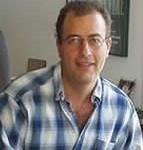
Professor of Computer Science at Hunter College & The CUNY Graduate CenterWilliam Gregory Sakas has been a professor at CUNY/Hunter College since September 2000. He has published a book chapter with J.D. Fodor in Language Acquisition and Learnabilityand co-authored a textbook, The Core Guide to PPL Programming. He received his A.B. from Harvard College in Economics and his Ph.D. in Computer Science from the City University of New York.
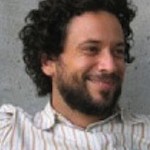
Associate Professor of English at Queens College CUNYJason Tougaw is Associate Professor of English at Queens College, CUNY. He is the author of Strange Cases: The Medical Case History and the British Novel (Routledge) and co-editor, with Nancy K. Miller, of Extremities: Trauma, Testimony, and Community (U Illinois). He has published essays in Auto/biography Studies, JAC, and The Scholar and the Feminist. His essay, “Aplysia californica,” published in Boys to Men: Gay Men Write about Growing Up (Da Capo Press), is part of the book project he’s currently completing, The One You Get: A Neurobiography. His Mellon project is entitled “If the Writer Is an Organism: Brain Memoirs and Neuroscience.”
POSTDOCTORAL FELLOW

Visiting Assistant Professor in Science Studies at the CUNY Graduate CenterEben Kirksey is a cultural anthropologist at the CUNY Graduate Center who studies the political dimensions of imagination as well as the interplay of natural and cultural history. His first book, “Freedom in Entangled Worlds”, is about an indigenous political movement in West Papua, the half of New Guinea under Indonesian control. This book will be published in 2011 by Duke University Press. As a guest co-editor of Cultural Anthropology Eben has assembled a collection of original research articles from the emerging field of multispecies ethnography.
DISSERTATION WRITING FELLOWS

PhD Student in Sociology at the Graduate CenterJohn Andrews received his BA in sociology and economics at Rice University in Houston, TX. After working for several years for a global apparel brand in San Francisco, he resumed study in sociology at the Graduate Center with interests in sociological theory, the sociology of knowledge and science, psychoanalytic theory and affect, global political economy, and queer theory among others. He has published most recently in the journals Women and Performance and Social Text.

PhD Student in Philosophy at the Graduate CenterCressida Gaukroger is a third year PhD student in the philosophy department. She specializes in the philosophy of mind and cognitive science. Her thesis defends an empiricist theory of concepts, arguing that ways of representing concepts traditional to philosophy are inconsistent with the information we are gaining from psychology and neuroscience about categorization behaviour, communication, and, more generally, the way the mind represents the world. Other research interests include early modern philosophy, where she work particularly on David Hume and the history of empiricism more broadly. Gaukroger also has research interests in aesthetics, especially the topic of aesthetic taste. Past work has been in philosophy of science, and the historical intersection between philosophy and science – particularly the bearing that sensory perception disorders had on 18th century debates over empiricism. She received her BA from the University of Sydney and MPhil in history and philosophy of science from Cambridge University.

PhD Student in English at the CUNY Graduate CenterDominique Zino is a Ph.D. Candidate in English at the Graduate Center, specializing in nineteenth-century American literature, visual culture, cognitive cultural criticism, and composition and rhetoric. She currently teaches writing and American literature at Queens College and is one of two co-chairs of the Graduate Center Composition and Rhetoric Community. She has been published in JAEPL (The Journal of the Assembly of Expanded Perspectives on Learning) and is currently at work on an article that highlights the relationship between the imaginative structures of the poetry of William Wordsworth and the art of drawing.



